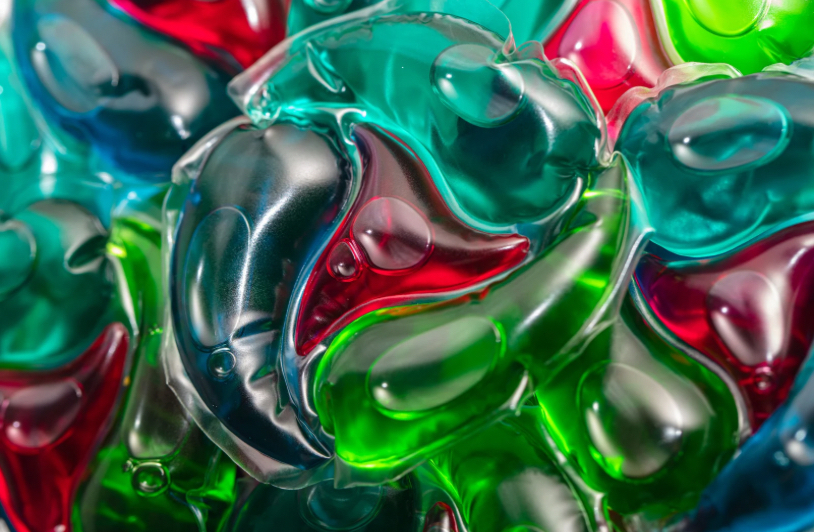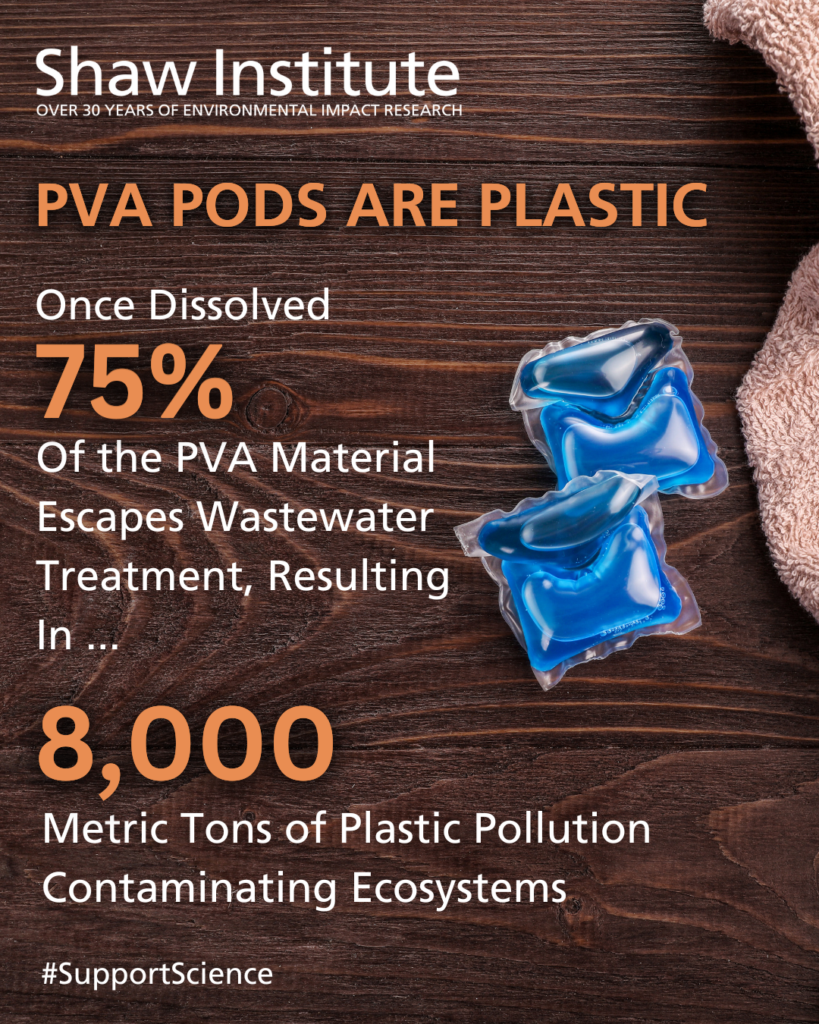NYC Exploring a Ban on PVA Detergent Pods As Research Indicates False Biodegradable Claims from Manufacturers
As you might have seen recently, there is a growing controversy over those convenient little detergent pods that so many of us use to wash our clothes and dishes.
What’s the big deal? In short, PVA – or polyvinyl alcohol – is plastic. While it’s a material we all use, it’s also marketed within the pod industry as being eco-friendly, biodegradable and even all natural. The plastic, PVA coating on the pods holds the detergent and dissolves away once it makes contact with water, thus releasing the detergent from within.
“The concern begins when we ask what happens to that plastic coating,” says Dr. Charlie Rolsky, co-author of the study that has sparked the controversy and executive director of the Shaw Institute, in Blue Hill, Maine. “PVA is water soluble, just like sugar or salt, which once added to water, disappears in time, but as we can taste, still very much remains within the water itself. The same is true of PVA.”
Forbes, Bloomberg, Fast Company, The Washington Post and many other large media outlets have been reporting on this for nearly two years, as Rolsky’s study suggests that manufacturers of PVA detergent pods are falsely claiming them to be biodegradable and/or “eco-friendly.”
This has led to changes in public opinion, and could soon lead to changes in public policy — at least in New York City, where City Councilman James Gennaro (D), recently proposed a ban on PVA detergent pods.
The bill, titled “Pods are Plastic Bill,” indicates that businesses would be unable to carry PVA-related products starting in 2026, and could risk up to a $1,200 fine for each violation.
“They [PVAs] are the most concerning of emerging contaminants,” Gennaro told the New York Post. “It’s important for people to know I’m being very cautious and we’re taking a science-based approach.”
The city council has referred the bill to its committee known as the Environmental Protection, Resiliency, and Waterfronts Committee — which is chaired by Gennaro.
While most of the public’s perception is that pods are convenient and unquestionably biodegradable, studies indicate they are not necessarily suitable for the environment like brands such as Procter & Gamble may suggest. Manufacturers disagree, and a group that represents them, the American Cleaning Council, has strongly voiced that the information just isn’t accurate (see our action box below).
According to Blueland, an environmentally friendly, household cleaner supply company, which also funded Rolsky’s study, PVA “is a synthetic plastic polymer found in many of our everyday products. PVA is often found in household items like dishwasher and laundry pods and sheets as a thin single-use plastic wrapping or woven into laundry sheets themselves.”
The paper was co-authored with Varun Kelkar, and was peer reviewed and published in the International Journal of Environmental Research and Public Health. The research examined the process of when polyvinyl alcohol enters wastewater treatment facilities — which refine water trickled down into the drain by removing contaminants and treating the solid waste before releasing the water back into the environment.
In short, roughly 19,000 tons of PVA are used in laundry and dish pods every year in the United States, and about 11,000 tons of that reaches wastewater treatment facilities.
Rolsky explained that his research team had extensive experience with wastewater treatment plants, sharing his methods for this study, saying, “we assembled all of the published literature that investigated how much PVA degrades in a conventional wastewater treatment plant…The whole purpose of the plant is to take biological material, treat it for things like pathogens, reduce the volume of the biological material and then make a kind of rich fertilizer at the end,” he continued, “and then once we came up with an estimation as to how much PVA degrades, we extrapolated how much of it goes untreated based on how much is used in the United States. The conditions needed for it to degrade fully are very specific and not consistently found anywhere in the US.”
Once this was done, Rolsky realized that only about 25% of the material degrades through aerobic pathways — meaning microbes — and 75% of the material still persists throughout. That means about 8,000 tons of PVA is entering escaping wastewater treatment plants every year in the United States.
Rolsky noted that most people likely use these pods as ways to enhance their environmentally friendly lifestyle — especially since pods are the forefront of many advertisements in the cleaning and washing industry— and they shouldn’t feel shame once they discover that these popular products are not sustainable. After all, we are a society dependent on plastics.
“I would say that with these situations, we don’t want people to feel bad that they ended up using the stuff,” Rolsky concluded. “A lot of these people are using these pods because they have that belief that they’re better for the planet than using the jug. And so regrettably, they end up feeling bad that this happened and that they were kind of misguided into thinking this was sustainable and eco-friendly. The jug may actually be better.”
It’s important to note that Rolsky says the issue is the labeling of these products as being eco-friendly and/or biodegradable. Whether the PVA released into the environment is truly harmful or not was not the basis of the study and he acknowledges that more research must be done in order to better understand that impact.
Click HERE to read a rebuttal of the study by the American Cleaning Institute.
Contact the office of Council Member James Gennaro: 718-217-4969, or write a letter to 180-32 Union Turnpike, Fresh Meadows, NY, 11366, and voice your stance on this proposed bill.
DCReport will continue to monitor this bill, and provide updates as news develops.






